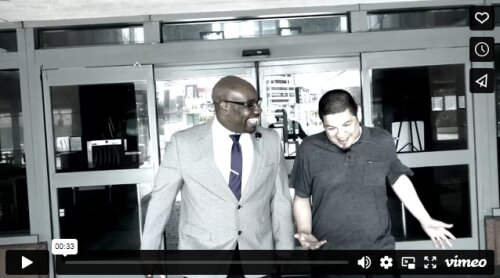Best Mortgage Lawyers in California
Share your needs with us, get contacted by law firms.
Free. Takes 2 min.
Free Guide to Hiring a Real Estate Lawyer
Or refine your search by selecting a city:
List of the best lawyers in California, United States
About Mortgage Law in California, United States
Mortgage law in California governs the process of obtaining, holding, and enforcing a mortgage on real property within the state. A mortgage is a loan secured by real estate, allowing buyers to finance the purchase of property. California is considered a "trust deed" state rather than a traditional mortgage state, which means that most home loans involve a deed of trust with three parties: the borrower (trustor), the lender (beneficiary), and a neutral third party (trustee). State and federal laws regulate how mortgages are issued, serviced, and potentially foreclosed upon, ensuring protections for both borrowers and lenders.
Why You May Need a Lawyer
There are several common situations where people in California may require legal assistance related to mortgages. If you are purchasing a home and have concerns about the loan terms or closing process, a lawyer can review your documents and help you understand your obligations. Homeowners facing foreclosure often need legal guidance to explore options such as loan modification, short sale, or defending against wrongful foreclosure actions. Legal help is also beneficial when there are disputes with lenders about payments, escrow, or the application of payments. Additionally, refinancing, home equity loans, and reverse mortgages often bring complex legal questions where expert advice is crucial.
Local Laws Overview
California has several laws and regulations that directly impact mortgage transactions. The state follows a non-judicial foreclosure process for most home loans secured by deeds of trust, which means foreclosure can occur outside of court if a borrower defaults. California laws require lenders to give borrowers advance notice before beginning foreclosure proceedings, including a 30-day contact period and a 90-day notice of default. The Homeowner Bill of Rights offers additional protections, such as restrictions on dual tracking (when a lender pursues foreclosure while reviewing a loan modification application). Anti-deficiency laws sometimes limit a lender’s ability to pursue unpaid mortgage balances after foreclosure, usually for purchase-money loans on primary residences. Also, mortgage brokers and lenders must follow licensing and fair lending standards under California and federal law.
Frequently Asked Questions
What is the difference between a mortgage and a deed of trust in California?
In California, most home loans use a deed of trust rather than a traditional mortgage. A deed of trust involves three parties and allows for a non-judicial foreclosure process, meaning the lender does not need to go to court to foreclosure in many cases.
How does the foreclosure process work in California?
Most foreclosures in California are non-judicial, which means the lender must follow a series of notice requirements but does not need court approval. The process usually includes contacting the borrower about options, issuing a notice of default, and providing opportunities to cure the default before sale.
What is the Homeowner Bill of Rights?
The California Homeowner Bill of Rights is a set of laws designed to protect homeowners facing foreclosure. It prevents certain unfair practices, such as dual tracking, and ensures borrowers receive proper notice and the opportunity to seek loan modifications.
Can a lender pursue me for a deficiency after foreclosure?
California’s anti-deficiency laws protect many homeowners from being personally liable for the balance still owed after foreclosure on certain types of loans, primarily purchase-money loans on primary residences. However, these protections may not apply to all loans or properties, so legal advice is important.
What are my rights if I fall behind on my mortgage payments?
If you fall behind on your mortgage, California law requires lenders to contact you to discuss options before foreclosure proceedings begin. You may have options such as repayment plans, forbearance, refinancing, or loan modifications.
How do I challenge wrongful foreclosure?
You can challenge a wrongful foreclosure by contacting a lawyer who can help you identify procedural errors or legal violations in the foreclosure process. It is crucial to act quickly to protect your rights.
Do I need a lawyer to buy or refinance a home in California?
While you are not legally required to hire a lawyer to buy or refinance a home, legal counsel can help you understand the documents you are signing, negotiate loan terms, and address any legal issues that arise during the process.
What is a loan modification and how can I get one?
A loan modification is a change made to the terms of your mortgage to make payments more affordable. You must apply through your lender and provide information about your financial situation. Legal help can improve your chances and prevent lender mistakes.
How does a short sale work in California?
A short sale allows you to sell your home for less than the amount owed on the mortgage, with the lender’s consent. This can help avoid foreclosure and reduce damage to your credit, but you should confirm whether you will still owe any unpaid loan balance.
What should I do if I suspect mortgage fraud or predatory lending?
Contact a lawyer immediately if you believe you are a victim of mortgage fraud or predatory lending practices. You can also file complaints with state and federal agencies for investigation and potential enforcement actions.
Additional Resources
If you need more information or help with mortgage issues in California, consider these resources:
- California Department of Real Estate - Regulates real estate professionals and provides information on mortgage fraud
- California Attorney General's Office - Offers resources for homeowners and investigates unfair lending practices
- U.S. Department of Housing and Urban Development (HUD) - Provides information on homeownership, loan programs, and housing counselors
- Consumer Financial Protection Bureau (CFPB) - Monitors mortgage lending practices and offers consumer guidance
- Legal Aid Organizations - Many nonprofits in California offer free or sliding-scale legal help on housing and mortgage-related issues
Next Steps
If you need legal assistance with a mortgage matter in California, start by gathering your loan documents, correspondence with your lender, and any notices you have received. Make a list of questions or concerns to discuss. Research and contact qualified real estate or mortgage lawyers, preferably those experienced with California law. Consider reaching out to local legal aid organizations if you cannot afford private counsel. Taking prompt action and getting informed advice will improve your chances of protecting your home and financial interests.
Lawzana helps you find the best lawyers and law firms in California through a curated and pre-screened list of qualified legal professionals. Our platform offers rankings and detailed profiles of attorneys and law firms, allowing you to compare based on practice areas, including Mortgage, experience, and client feedback.
Each profile includes a description of the firm's areas of practice, client reviews, team members and partners, year of establishment, spoken languages, office locations, contact information, social media presence, and any published articles or resources. Most firms on our platform speak English and are experienced in both local and international legal matters.
Get a quote from top-rated law firms in California, United States — quickly, securely, and without unnecessary hassle.
Disclaimer:
The information provided on this page is for general informational purposes only and does not constitute legal advice. While we strive to ensure the accuracy and relevance of the content, legal information may change over time, and interpretations of the law can vary. You should always consult with a qualified legal professional for advice specific to your situation.
We disclaim all liability for actions taken or not taken based on the content of this page. If you believe any information is incorrect or outdated, please contact us, and we will review and update it where appropriate.
Browse mortgage law firms by city in California
Refine your search by selecting a city.















